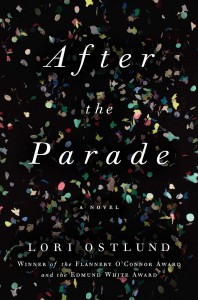 Published by Scribner 22 September 2015
Published by Scribner 22 September 2015
352pp, hardcover, $25
Reviewed by Elsbeth Lindner
A mood of gothic freakishness pervades Ostlund’s debut, the engrossing story of Aaron Englund, 42, gay and living alone, at last, in San Francisco after a complicated, potentially ruinous youth. The son of a misanthropic policeman and an increasingly depressed mother, Aaron grows up timid, smart, withdrawn and socially uncertain. The curiosities that Englund introduces into his bewilderment are both shocking and compelling.
There’s the cruelty of Aaron’s father and the equally repellent home life of his uncle, into whose care the boy is temporarily given after his father’s sudden death and his mother’s breakdown. Even weirder are the tusks growing from the nostrils of an articulate dwarf named Clarence who is the son of Aaron’s mother’s good friend Gloria. Gloria too begins to develop alarming symptoms: owing to some physical imbalance, her hands and feet grow to gigantic proportions. All this – and considerably more – is held within Ostlund’s relatively realistic landscape, its meaning underlined by Clarence’s pointed sharing with Aaron his passion for the work of Diane Arbus to whom he has written (even though she is dead), offering himself as a subject. Odd people at one remove from society – these are the folk who populate this appealing story, which is narrated largely in flashback.
Ostlund includes a great deal more plot: Aaron’s abandonment; his rescue by Walter, an older man and a university professor who becomes his lover; the escape from Walter that kicks off the story and contains its own strange and memorable little seed of an episode. The author nimbly balances tragedy and humor, surprise and some predictability with decided charm.
In particular, she skewers Aaron’s good-hearted slow burn of a personality, his emergence into adulthood as an intelligent, essentially conservative gay man – ‘You know, there’s something to be said for the security of the familiar in all its confusing glory’ – who is nevertheless capable of small bursts of assertion. If Aaron’s childhood is characterized too often by his emblematic confusion with words and meaning, it’s a forgiveable flaw in an impressive first novel.
